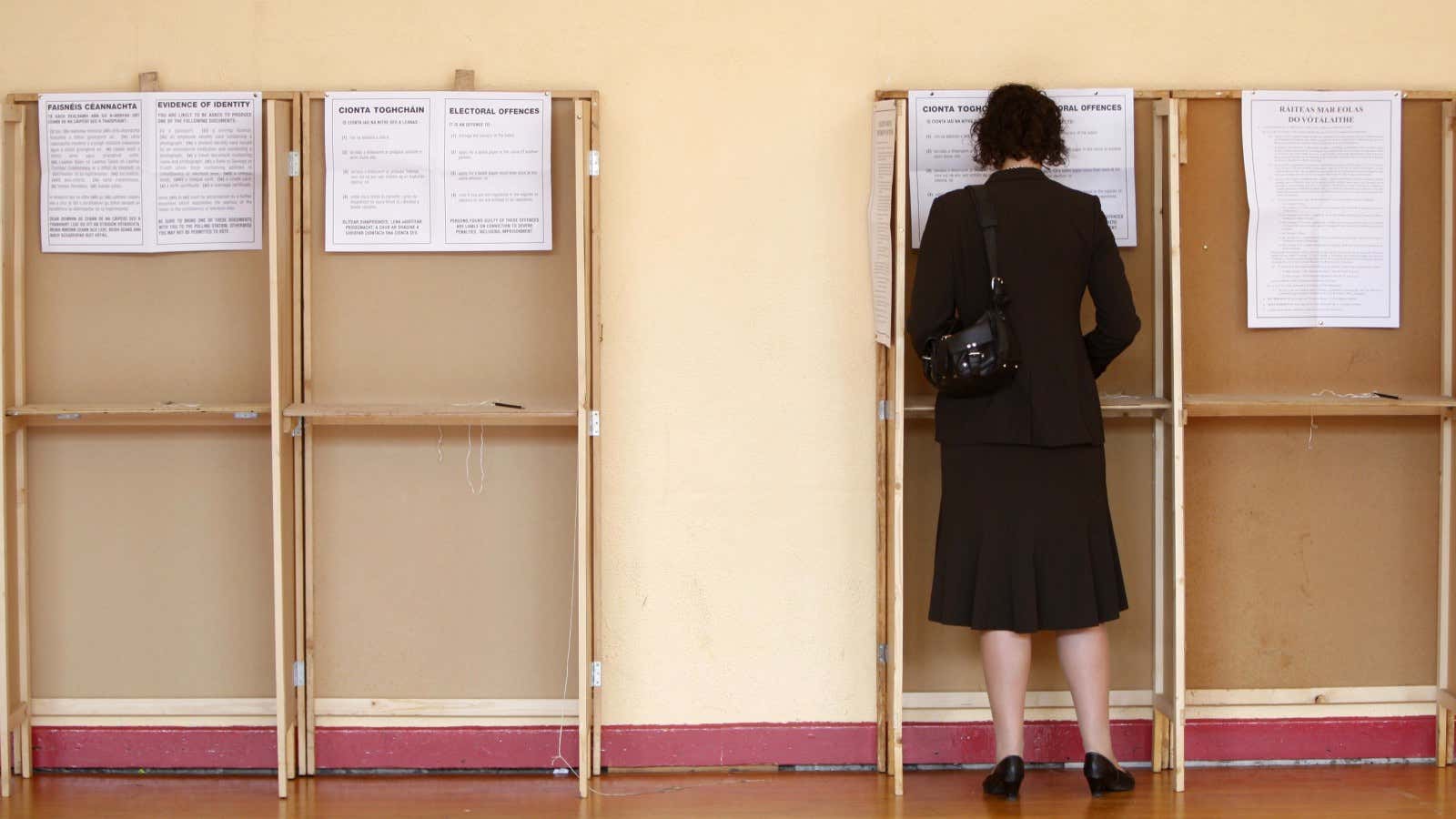Across Ireland, people are heading to the polls to decide whether same-sex couples should have rights to marriage equal with the rest of the population. A yes vote is likely, indicating that the country—with all its Catholic heritage and tendency towards social conservatism—is taking large steps towards greater social liberalization.
But while human rights campaigners may see gay marriage as a hopeful change, Ireland will remain one of the world’s most restrictive regimes when it comes to another embedded conflict between conservatives and liberals: abortion rights.
Abortion is illegal in Ireland. That doesn’t mean no women have abortions: it means they travel to the UK to procure them privately, if they can afford to do so—a well-known fact that is recognized in the Irish constitution and measured by the UK Department of Health, which reports that (pdf) in 2013, over 3,600 women from Ireland had abortions in the UK.
There is one exception to the law: Women are allowed an abortion if the life of the mother is in danger. But ingrained anti-abortion attitudes have meant that right is not always guaranteed. In 2012, a woman died after being refused a termination.
Abortion is illegal even if a women has been raped, and even in cases of underage rape. There is also no exception for when a fetus is abnormal and certain to die after birth.
So what makes a society willing to allow a transformation in the social fabric on the scale of marriage between same-sex couples, but retain its intransigent stance on abortion—an issue that takes in not only social rights but, arguably, fundamental human rights?
The answer may be that rights are not the issue (pdf), as argued by Ivana Bacik, a barrister and Irish senator. Abortion in Ireland—as in many countries, including America—is a deeply politicized issue. In the US, this has manifested recently in a number of conservative state legislations making access to abortion more difficult. (Gay marriage is also, of course, a political issue, but one that seems, in Ireland, to have caused a less entrenched conflict than those surrounding pregnancy and termination.)
In Ireland, the current situation on abortion is also the result of a referendum. Back in 1983, an amendment to Irish law (in which abortion was already illegal) was suggested that introduced the notion of fetal rights. After a battle in parliament over the wording, it was put to the Irish public, the statement couched in legalese. The public voted yes, and the “8th amendment,” as it is known, has been a battleground ever since. In some cases, a woman was represented in court by one team, and the unborn fetus by another.
Of course, although today’s referendum is likely to pass, it has found some opposition among those Catholics with strongly held beliefs and socially conservative views around the sanctity of “traditional” families and the rights of children. Those same beliefs come into play in the case of abortion and the rights of fetuses.
Niall Behan, chief executive of the Irish Family Planning Association, a sexual health charity, told Quartz that attitudes are changing to abortion, as well as to same-sex marriage.
“Opinion polls consistently show increased support for access to abortion within Ireland,” he said. “Regardless of the outcome, the marriage equality referendum is a significant landmark that reflects these changes in attitude, particularly in relation to sexuality.”
The support for same-sex marriage is evident the top levels of government. Enda Kelly, the Irish prime minister or taoiseach, said on Wednesday: “There is nothing to fear for voting for love and equality.” Women’s rights activists and campaigners for access to abortion will be wondering whether some of the liberal momentum can carry forward a movement they’ve been leading for more than 30 years.
